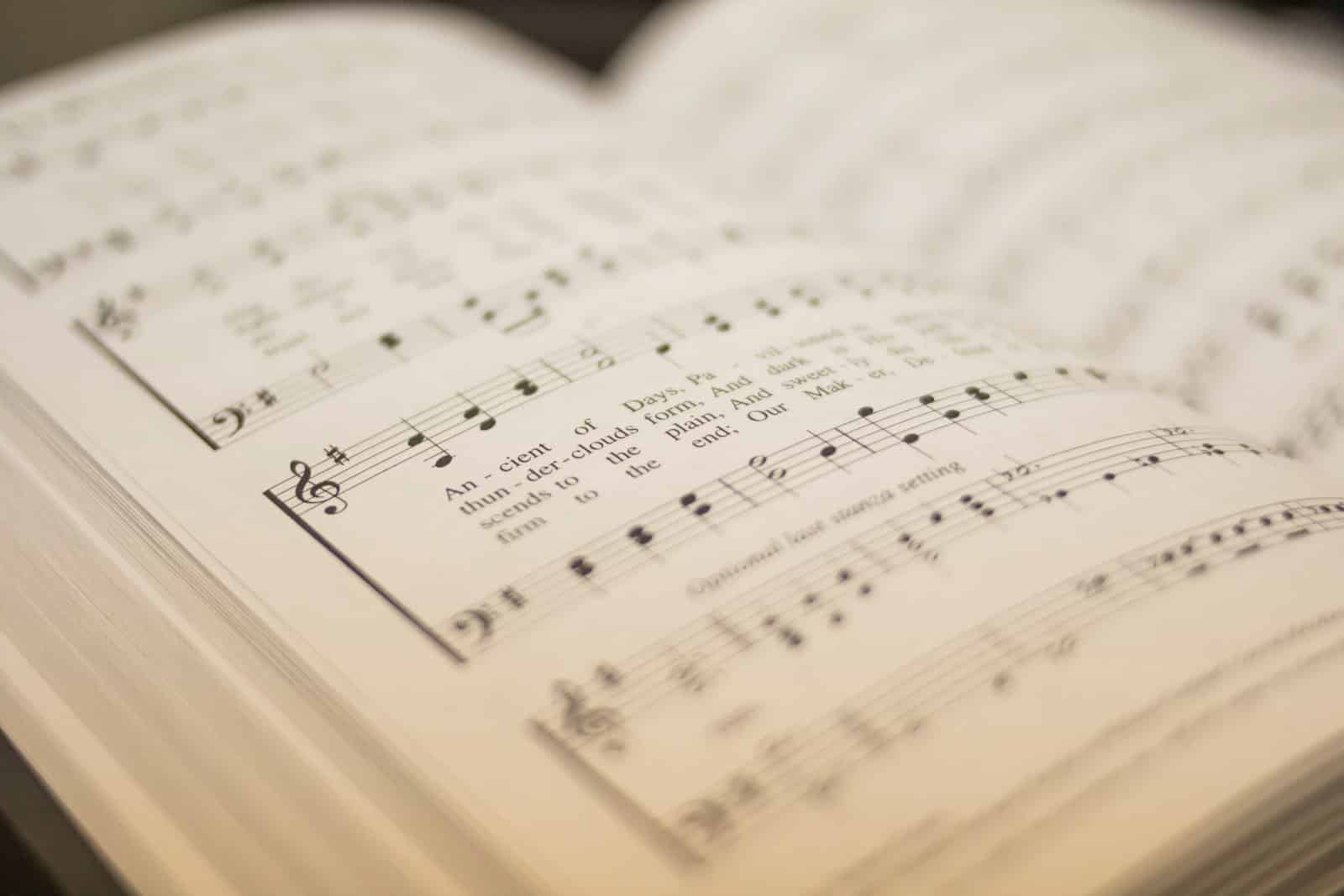Don’t use adjectives which merely tell us how you want us to feel about the thing you are describing. I mean, instead of telling us a thing was “terrible,” describe it so that we’ll be terrified. Don’t say it was “delightful”: make us say “delightful” when we’ve read the description. You see, all those words (horrifying, wonderful, hideous, exquisite) are only like saying to your readers “Please will you do my job for me.”
C. S. Lewis
Lewis helps us to recognize a flaw in much modern Christian songwriting. No doubt, many contemporary songs are vast improvements on the gospel-song cliché-mill. The re-commitment to theological clarity and depth in many contemporary hymns is something to rejoice over, and any serious Christian will be thankful for an injection of sound theological ideas into the gelatinous world of modern evangelical conviction.
With all that said, I find Lewis’s sentiment played out before me in not a few modern songs. These songs seem to try to gather as many superlative adjectives as possible that will fit the meter of the song. These are then piled on top of one another, and the result is a rapid-fire of high-concentrate adjectives. The resulting lyrics are something like: “Indescribable majesty, incomparable glory, unbounded mercy, immeasurable beauty…”
Yet for all this verbal altitude, the effect is palpably flat. Instead of soaring into the heights of praising God as the ultimate Being, we sing these super-hero adjectives with a sense of incomplete affection. It is as if we are hoping that these superlative adjectives will kick-start our delight in God. Some worshippers succeed, others don’t. Likely, most content themselves with the thought that ascribing superlative adjectives to God is surely the right way to go, even if little moral excitement is raised in response to them.
Lewis helps us to see the difference between mere ascription and description. Ascription is fine in its place. Indeed, the biblical psalmists certainly use ascriptions of praise. They rarely, if ever, do this apart from some metaphorical description of God. Ascription by itself does little to fire the imagination of the reader, or in our case, the worshipper. The job of a writer of works of imagination (as poetry is) is to do more than report matters, but to transport the reader through the imagination.
Likewise, a songwriter wants to do more than simply inform listeners as to the objective worth of God. A songwriter wishes to draw Christians to encounter the beauty of God through poetic descriptions. As a work of imagination, poetry has its power through descriptive analogies. We encounter God’s satisfying glory, not when we sing, “You are incomparably satisfying,” but when we sing, “We taste Thee, O Thou living Bread, and long to feast upon Thee still.” We experience God’s power, not when we sing, “You are unimaginably powerful,” but when we sing, “Thy chariots of wrath the deep thunder clouds form.” We apprehend God’s love, not when we sing, “Your love is unbelievable,” but when we sing, “Here is love, vast as the ocean, lovingkindness as the flood.” Description evokes affection; ascription, by itself, simply invites agreement or disagreement.
Description evokes affection; ascription, by itself, simply invites agreement or disagreement.
Merely stringing superlative adjectives together that rhyme or fit the melody may be, in some cases, a kind of laziness on the part of the writer. By saying nothing more than “God is indescribable” (which is surely the laziest of all adjectives), incomparable, or unbelievable, the songwriter fobs off the responsibility of imagining God rightly to the worshipper. He has given us a kind of apophatic theology (where we say only what God is not, not what he is).
The result is a frustrating emptiness as we sing. The writer has cheated us, and abandoned us before his work is done. He has found a pleasing melody and invited us to feel something toward God. Just as we begin to use our minds to consider God, he leaves us with a true ascription of praise about God with nothing to help our affections to rise to the occasion. He expects us to do imaginative pole-vaulting with the twigs of his superlative synonyms.
God’s people need more than this. Talented songwriters can do better. It is not as if we don’t have an inspired songbook to show us how it’s done. Let’s mine the Word of God and the world of God for analogies that will fire and inspire the Christian imagination to rightly know and encounter our infinite God.




